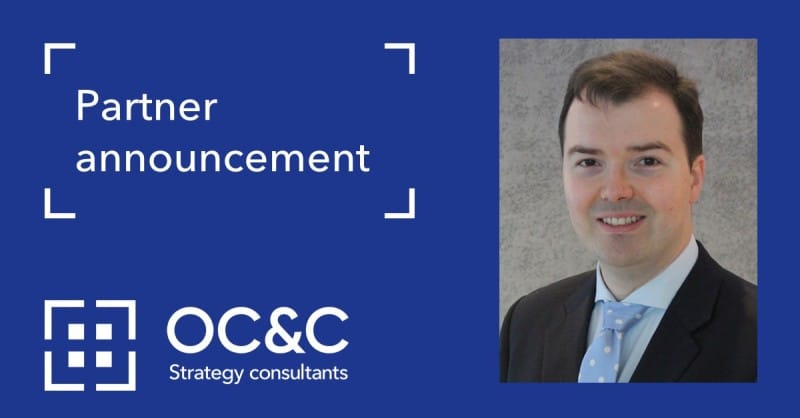Bigger than splitting the atom: how the rise of AI has already begun
OC&C Strategy Consultants has surveyed 400 C-suite executives and thought leaders across the US and UK, including 80 deep-dive interviews to better understand how AI is shaping business.
Key findings
- 71% of UK and US C-Suite executives have already adopted AI in their businesses.
- In 2018, businesses invested $219bn in AI. This annual global spend is set to grow to $400bn by 2025 and account for 10% of all IT spend.
- 85% of C-Suite executives believe they have missed business opportunities by not using AI sooner.
AI is not a future trend, it is already driving business growth
In 2018 global AI spend by businesses hit $219bn with US businesses investing $91bn and the UK lagging behind at $12bn. According to OC&C Strategy Consultants latest report, Let’s Get Real About AI, 71% of C-suite respondents have already invested in AI and 86% say they have missed business opportunities because they did not invest in the technology sooner.
Disruption is an overused cliché, but OC&C’s research demonstrates that the AI earthquake has led to 85% of execs believing new AI-powered entrants will take market dominance in their sector. AI will drive efficiency through automating parts of people’s jobs – therefore many businesses believe it is vital to adopt AI in order to keep up with other businesses and not lose competitive advantage.
“Our research reveals the current adopters of AI are outperforming those yet to invest in the technology. Therefore, it’s essential that businesses find how best to deploy AI and use it as a transformative catalyst. By working out the pivot points where AI can make the biggest impact, businesses can plan for tomorrow and make sure they’re not left behind by competitors.” James Walker, Partner at OC&C
However, it is a common misconception that AI will totally replace human involvement in tasks, AI will be more frequently used to enhance human capabilities and reshape roles. With AI spend set to grow to $400bn annually by 2025 it is predicted that half of jobs will have 50% of their activities automated by this time.
“Using AI is a complex task for businesses to navigate. There are an incredible number of factors to consider in order to realise AI’s full potential and it’s therefore vital that businesses get under the skin of it. We believe AI will become one of the biggest technologies in human history; as one of our interviewees put it, ‘bigger than the internet, bigger than splitting the atom’. There are obvious standout industries that AI will dominate; advanced robotics powered by AI will be a $5 trillion industry by 2025, in addition to other digital service industries such as programmatic media buying becoming 100% automated by the same time.” James Walker, Partner at OC&C
Driving efficiency by reinventing jobs
AI allows robots to perform more complex tasks which involves a more sophisticated level of decision making. OC&Cs’ report demonstrates the appetite for businesses to redesign current jobs to increase productivity by letting robots do what they do best, and humans what they do best. At present AI is making businesses more productive by cost reduction, however, in the long-term AI will be much more about effectiveness and ultimately making employees more productive.
Interestingly, and most ironically, the biggest challenge when businesses adopt AI is the human transformation rather than the machines. AI requires change that goes deeper than technology. The impact of AI will change processes, skills, organisation design, operating models and culture.
To achieve maximum benefits from AI, businesses need to plan carefully and communicate clearly.
- The opportunity is to grasp AI as a wholly transformational catalyst – not merely as disjointed proof of concepts, pilots and/or experiments addressing a narrow functional problem.
- Business leaders must work to demystify AI and think about how AI can transform key parts of their business functions or value chain. To do this, executives must be educating themselves about AI, rather than relying solely on experts.
- Businesses should think creatively about how AI could change or disrupt the industry and their own business model.
- CHROs need to reimagine workforces and organisational design to ensure AI can be implemented seamlessly.
主要联系人

David Zdravkovic
首席分析官

James Walker
Partner

